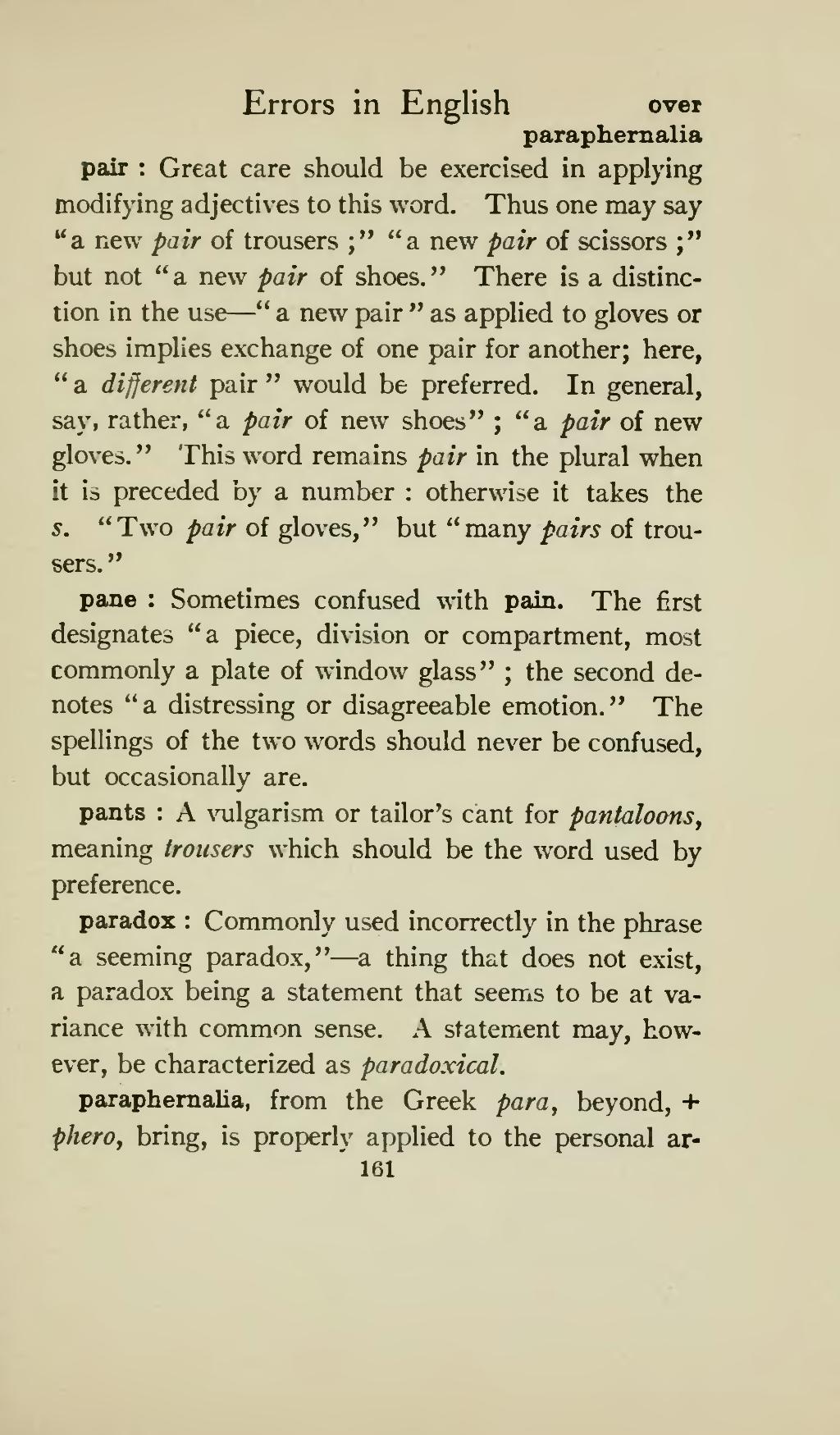paraphernalia
pair: Great care should be exercised in applying modifying adjectives to this word. Thus one may say "a new pair of trousers;" "a new pair of scissors;" but not "a new pair of shoes." There is a distinction in the use—"a new pair" as applied to gloves or shoes implies exchange of one pair for another; here, "a different pair" would be preferred. In general, say, rather, "a pair of new shoes"; "a pair of new gloves." This word remains pair in the plural when it is preceded by a number: otherwise it takes the s. "Two pair of gloves," but "many pairs of trousers."
pane: Sometimes confused with pain. The first designates "a piece, division or compartment, most commonly a plate of window glass"; the second denotes "a distressing or disagreeable emotion." The spellings of the two words should never be confused, but occasionally are.
pants: A vulgarism or tailor's cant for pantaloons meaning trousers which should be the word used by preference.
paradox: Commonly used incorrectly in the phrase "a seeming paradox,"—a thing that does not exist, a paradox being a statement that seems to be at variance with common sense. A statement may, however, be characterized as paradoxical.
paraphernalia, from the Greek para, beyond, + phero, bring, is properly applied to the personal ar-
161
